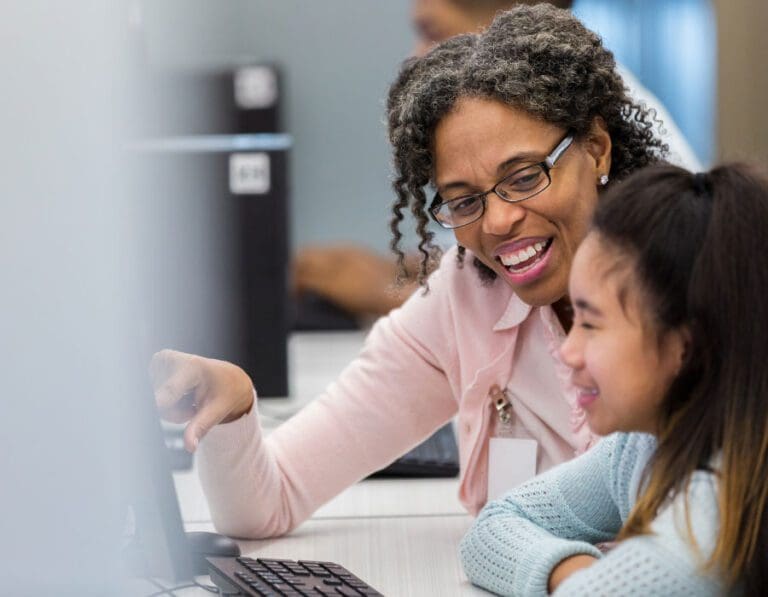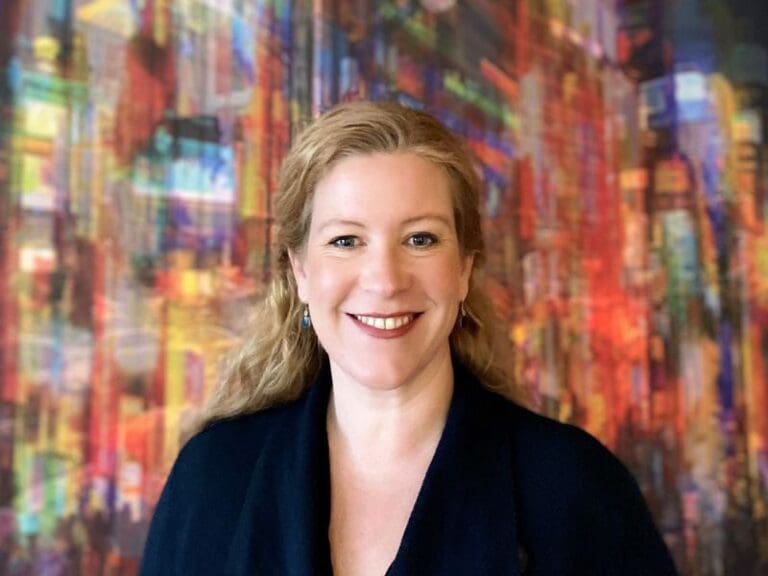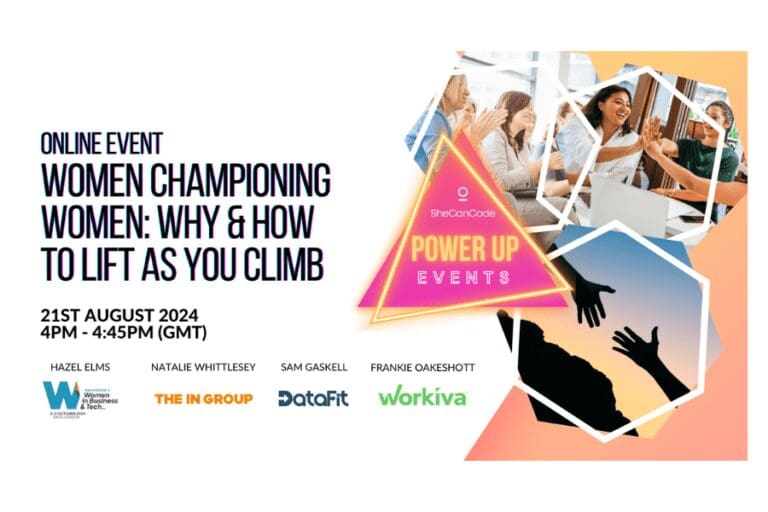
Duncan is the Partnerships and Development Director for Future First, the UK education charity helping young people in state schools and colleges broaden their horizons by connecting them with former pupils and other positive role models.
IT’S NO SECRET, THAT WHEN IT COMES TO CLOSING THE TECH GENDER GAP, ROLE MODELS ARE VITAL.
The question is, how accessible are these role models, and are they available to girls and young women from all backgrounds? After all, it goes without saying that- you can’t be what you can’t see.
From the minute we are born, we observe those around us to help us learn, develop and thrive. This influence continues throughout our lives, with the people we meet and interact with, influencing shaping and affecting who we become.
But what if our lives are void of these influences? If a child or young person is without certain role models, most often their options and aspirations are inevitably limited, and their understanding of their true potential constrained. It then becomes challenging to know what we can be, if evidence of success remains unseen.
Take for example the recent World Cup tournament and the job of the referee. For the first time in history, a woman refereed a men’s World Cup game. Stephanie Frappart demonstrated to many budding young female referees all over the world, that the boundaries were removed, and that reaching that level in that particular career is now a possibility. However, if you missed the tournament, you might still believe being a female referee at a World Cup men’s game was an impossibility.
Of course, Stephanie has a global platform to demonstrate herself as a positive role model, whereas for many girls and young women, accessing relatable role models in other jobs is more of a challenge. Without seeing and hearing from women in technology, girls can potentially perceive those roles as something out of reach to them.
RELATABLE INSPIRATION
To improve access to role models, there is a need for more women working in technology to talk about their jobs, to share the unique pathways they took, the challenges and pitfalls and the joys of their journeys. Most importantly, these role models must be relatable. Whilst it’s a positive message to see a female CEO, relatability is crucial, and nothing resonates with young people more than hearing from ‘someone like them’.
Working with your former school as an alumni member, or past pupil is one of the best methods to becoming a relatable role model. It means that, when telling your story, you reach girls with a similar background, from the same area, who sit in the seat you once sat in.
This will immediately allow girls and young women to consider a career they may have otherwise overlooked, whilst enabling them to develop the self-confidence to understand that ‘people like them’ can succeed in a career in technology. It also highlights that roles in technology are not exclusive to males, despite the fact that just 19% of the UK’s tech workforce and 22% of director-level jobs are held by women. It also allows young women to see and understand that, just because they don’t know anyone in that industry, it doesn’t mean it is out of reach.
This is especially important for girls from disadvantaged areas as it’s been reported that 50% of the most disadvantaged pupils don’t know anyone in a job they’d want to do, and only one in eight of the poorest pupils will go on to be high earners.
If more women in tech communicate their stories, demystify the true meaning of their roles and discuss the function and day-to-day activities of their occupation, it may pave the way for more girls to gain an interest in that career. And, if they have similar experiences and interests, went to the same school and grew up in the same area, the role model’s journey will resonate even more.
As well as broadening young people’s horizons, access to role models can help young pupils develop an interest in specific topics and increase their motivation to study them. Our charity is currently using alumni networks and teaching resources to inspire students to study physics beyond GCSE level. This is an Institute of Physics funded project and will see Future First work with 35 schools over the next two years across all four UK nations, helping girls and young women to learn about their career possibilities.
BECOMING A ROLE MODEL
There are a number of ways you can become a role model as a woman working in technology. You can begin by contacting your school to see if they utilise their alumni as role models, and if not, if perhaps they might consider doing so?
Over the past decade, Future First has helped over 1,300 school members to engage their past pupils as powerful role models, communicating in various ways to inspire current students. If your former school is a member, you can simply add details of your career to our digital platform, The Hub – or upload a short video message for all to see. Your contribution to your school can range from offering interested pupils motivating information about your role and career journey, to being a mentor, or you can offer assembly presentations or classroom discussions, allowing you to share the details of your journey from school to where you are now.
As more women talk about their unique pathway and career in technology, they will influence a new generation, inspiring them and motivating them to consider a career in the industry. However, the most important aspect in inspiring girls to pursue a career in this industry, is showing them that people just like them have already done it.








